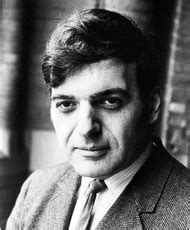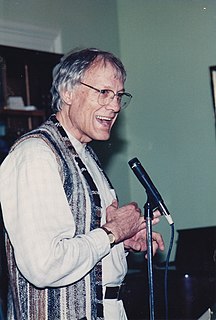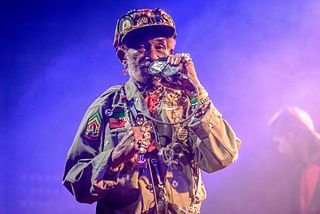A Quote by Elie Wiesel
In my tradition, one must wait until one has learned a lot of Bible and Talmud and the Prophets to handle mysticism. This isn't instant coffee. There is no instant mysticism.
Related Quotes
What is an "instant" death anyway? How long is an instant? Is it one second? Ten? The pain of those seconds must have been awful as her heart burst and her lungs collapsed and there was no air and no blood to her brain and only raw panic. What the hell is instant? Nothing is instant. Instant rice takes five minutes, instant pudding an hour. I doubt that an instant of blinding pain feels particularly instantaneous.
Of course, mysticism is very hard to isolate because, given the kind of consciousness that I was sort of instructed in as religious consciousness; that borders on mysticism so closely that it's hard to know whether you qualify or not, or whether mysticism is artificially isolated when it is treated as a separate thing from experience. Obviously, mysticism can be a form of madness, but then consciousness can be a form of madness.
Major Trends [is] the canonical modern work on the nature and history of Jewish mysticism. For a sophisticated understanding, not only of the dynamics of Jewish mysticism, but of the exquisite complexities of Jewish history and tradition, Major Trends is a major port of entry through which one must pass.
Mysticism has often been misunderstood as the attempt to escape this simple, phenomenal world to a more pure existence in heaven beyond. This is not mysticism, but Gnosticism. Biblical mysticism is the attempt to exit 'this world' to an alternative reality that pervades the old order. Its goal is to jettison the mind-set that says 'greed is good,' selfishness is normal,' and 'killing is necessary.' Mysticism in biblical terms is not escapism, as so many have caricatured it, but a fight for ethics and social change.
In this modern day and age, we have instant coffee, instant tea - instant disbelief. That's the reason we will never become anything. It is because we will never believe in ourselves. We will always listen to the mass majority. If everybody's making fun of you and criticizing you, then you know you're on the right track. 'Cause most people ain't got it.



































